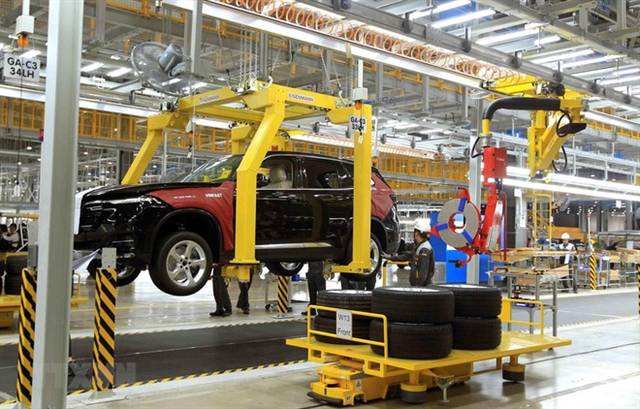In early 2025, Việt Nam’s automotive industry recorded strong momentum. Alongside the surge in vehicle output, several international brands announced plans to establish factories in the country.

HÀ NỘI — Domestic car production surged as Việt Nam emerged as a new auto manufacturing hub for international brands, according to the General Statistics Office (GSO).
Automobile output in Việt Nam rose sharply in the first months of 2025, compared to the same period last year, as many global carmakers selected the country as a destination for new manufacturing facilities.
In early 2025, Việt Nam’s automotive industry recorded strong momentum.
According to GSO data, 36,700 vehicles were manufactured in March alone. Total output for the first quarter of 2025 reached approximately 106,400 units – an increase of 81.5 per cent compared to the same period in 2024, nearly doubling year-on-year growth.
Earlier, domestic automobile production had slowed slightly in February due to the Tết (Lunar New Year) holiday, which caused a temporary dip in both supply and demand.
Sales figures from the Vietnam Automobile Manufacturers Association (VAMA) showed that by the end of February, 40,499 vehicles had been sold in Việt Nam. This included 20,187 domestically assembled units – up 23 per cent year-on-year – and 20,312 imported vehicles, marking a 41 per cent increase.
VinFast, the country’s leading electric vehicle (EV) manufacturer, reported nearly 23,000 EVs sold domestically during the first two months of 2025. The company remains one of the few car manufacturers with an entire assembly line at a local facility in Việt Nam.
In recent decades, Việt Nam has been home to manufacturing plants for several major auto brands, including Toyota, Hyundai, Ford, Kia, Mazda, Wuling and Suzuki, as well as luxury marques such as Mercedes-Benz and BMW. Czech automaker Skoda recently inaugurated its factory in Quảng Ninh Province, with the Skoda Kushaq being the first model produced at the facility.
Chinese brands Omoda and Jaecoo, both part of Chery Group, are also set to begin production in Việt Nam. Meanwhile, Geely and Lynk & Co, in partnership with Vietnamese conglomerate Tasco, prepared to break ground on a new plant. Chery identified Việt Nam and Malaysia as key locations in its global manufacturing network, positioning Việt Nam as its primary production hub in Southeast Asia.
In October 2024, Hyundai Thành Công exported its fourth batch of Hyundai Palisade SUVs to Thailand, bringing the total number of units delivered to that market to 110.
Prior to Hyundai’s efforts, local manufacturers such as VinFast and Thaco had already begun exporting vehicles to countries in Southeast Asia, and entered markets across the Pacific, including the United States and Canada. — VNS





